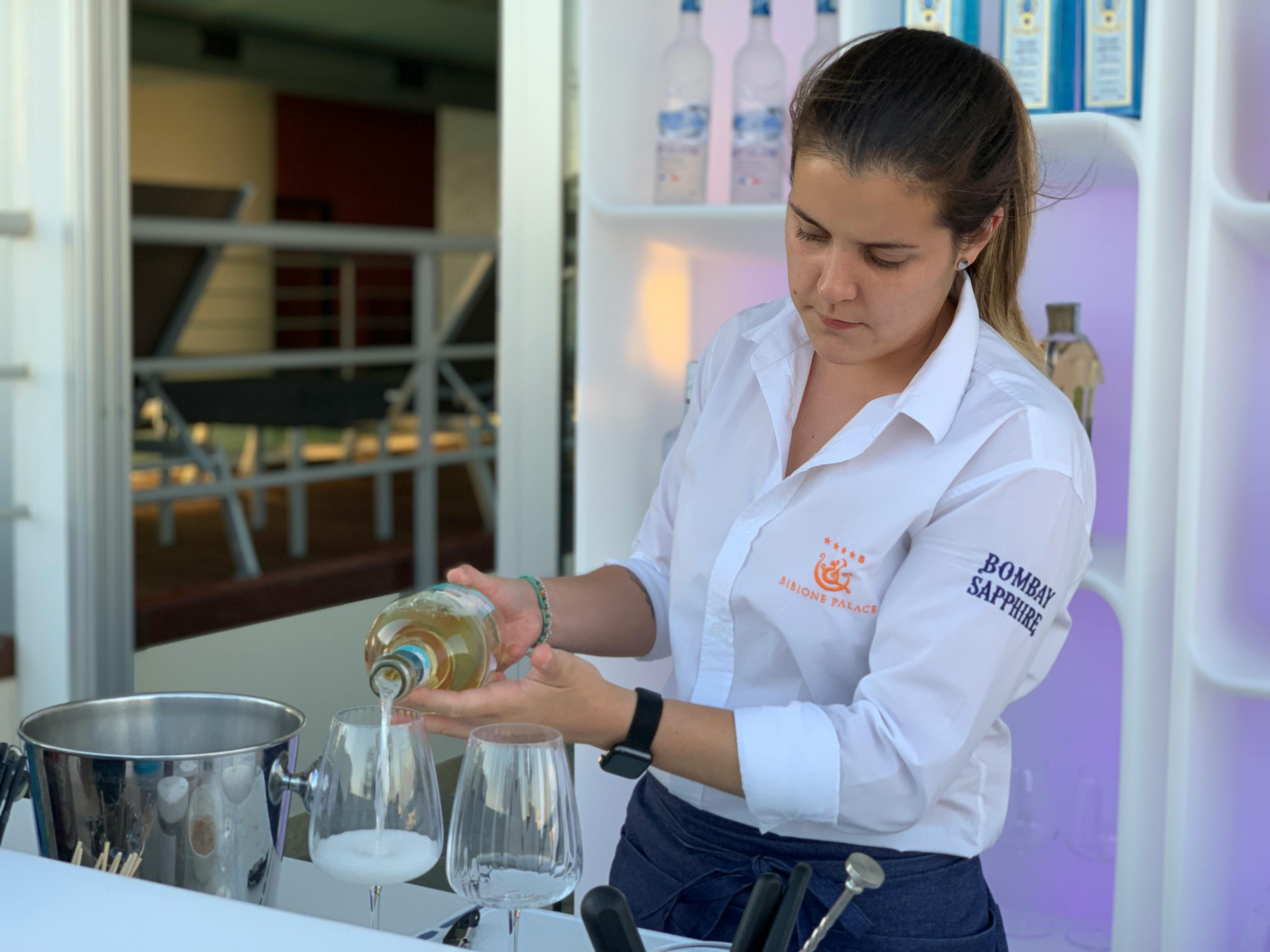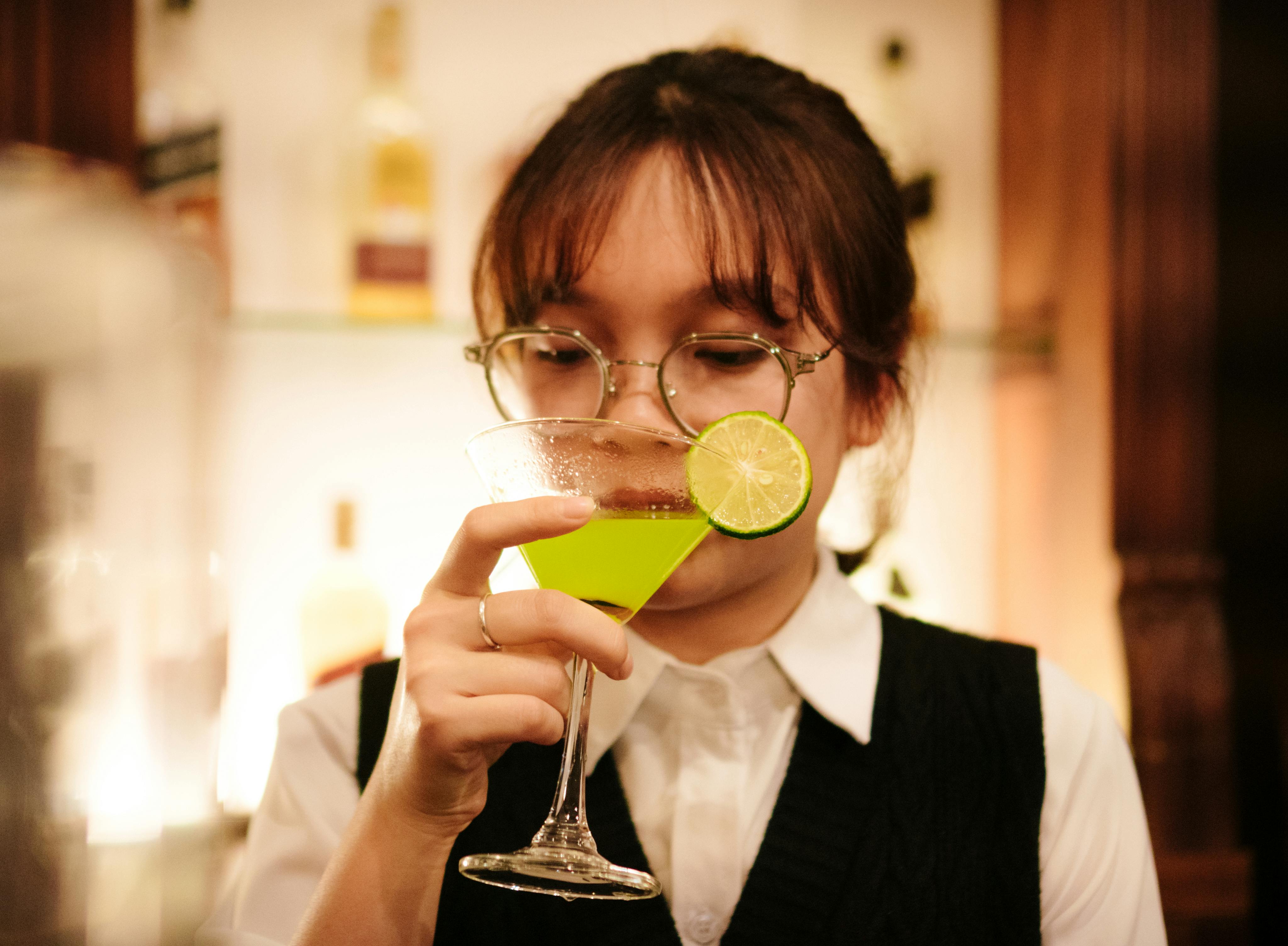Distilled alcohol, also known as spirits or hard liquor, is a type of alcoholic beverage produced by distilling fermented grain, fruit, or vegetables. Distillation is a process that involves heating the fermented liquid to separate the water from the alcohol. The resulting product contains a higher concentration of ethanol than beer or wine. It is typically served neat (without any mixers) or used to make mixed drinks such as cocktails. Distilled alcohol can range in alcohol content from 20-95%, with most spirits falling in the 40-60% range.Distilled alcohol, also known as spirits, is an alcoholic beverage made by distilling fermented grain, fruit, or vegetables. This process involves heating the liquid until it vaporizes and then condensing it back into liquid form. The resulting product typically contains a higher concentration of alcohol than beer or wine, with some brands reaching up to 95 percent ABV (alcohol by volume).
Ingredients Used To Make Distilled Alcohol
Distilled alcohol is produced by a process called distillation. This process requires the use of certain ingredients, all of which must be carefully selected and monitored to ensure the highest quality possible. The primary ingredients used to produce distilled alcohol are grain, fruit, sugar, and yeast.
Grain is the most common ingredient used for making distilled alcohol. Grains such as barley, wheat, rye, and corn are typically used for making whiskey and vodka. The grain is first converted into a form known as “mash” which is a mixture of hot water and milled grain. The mash is then fermented with yeast to convert the sugars in the grain into ethanol.
Fruit can also be used to make distilled alcohol such as brandy, rum, and eau de vie. Fruits such as grapes, apples, pears, and peaches are commonly used in these spirits. Like with grains, the fruit must be converted into a mash before it can be fermented. The mash is then combined with yeast and distilled to produce the desired spirit.
Sugar is another common ingredient used in some distilled spirits such as
Types of Distilled Alcohol
Distilled alcohol is a type of beverage that is created through the distillation process, which separates different components from a liquid. This process can be used to create a variety of different types of distilled alcohol, such as vodka, whiskey, gin, and rum. Each type of distilled alcohol has its own unique properties and flavors that make it distinct from the others.
Vodka is one of the most popular types of distilled alcohol. It is made from grains or potatoes and is usually colorless and odorless. Vodka has a fairly high alcohol content, usually around 40%, and is often used as an ingredient in mixed drinks.
Whiskey is another type of distilled alcohol that has been around for centuries. It is made from grains such as barley or rye and aged in wooden barrels for several years to give it its characteristic flavor and aroma. Whiskey typically has an alcohol content ranging from 40-50%.
Gin is another type of distilled alcohol that is made from juniper berries and other botanicals. It has a strong herbal flavor with notes of citrus, making it a popular choice for mixed drinks such as the
Processing of Distilled Alcohol
Distilled alcohol is a type of alcoholic beverage that is produced by distillation process. It is generally made from grain, grapes, or sometimes other fruits. The distillation process involves boiling the liquid and then condensing the vapors into a liquid form. This process removes some of the impurities from the original liquid, resulting in a product that is much higher in alcohol content. Distilled alcohol can be consumed either straight or mixed with other drinks to create cocktails.
The production of distilled alcohol can be divided into several steps. First, the raw materials such as grains or grapes must be prepared and then mashed or fermented to produce an alcoholic solution known as “wash” or “beer”. This wash is then heated in a still and vaporized, and then the alcohol vapors are collected and cooled to form a liquid again. This liquid is known as “distillate” and it contains most of the original flavor and aroma from the original raw material, as well as high levels of alcohol content.
Once the distillate has been collected, it must be aged before it
Is Distilled Alcohol Safe To Drink?
When it comes to the safety of drinking distilled alcohol, the answer is yes – but with some important caveats. It is safe to drink responsibly in moderation, and as long as it has not been tampered with or contaminated. Distilled alcohol is a highly concentrated form of ethanol, and its effects on the body can be more powerful than other forms of alcohol. For this reason, it is important to consume distilled alcohol responsibly and not exceed recommended guidelines.
Alcohol consumption can have serious health risks when abused or consumed in excess, including liver damage, heart disease, certain types of cancer, and mental health problems such as depression and anxiety. It’s also important to be aware that over-consumption of alcohol can contribute to accidents or even death. Therefore, it is important to know your limits and drink responsibly whenever consuming distilled alcohol.
Another factor to consider when deciding whether or not to drink distilled alcohol is whether or not it has been tampered with or contaminated in any way. It’s important to always check the label for any signs of tampering or contamination before consuming any type of alcoholic beverage. If you

Distilled and Fermented Alcohol
Alcohol can be divided into two broad categories: distilled and fermented. Distilled alcohol is made by boiling a fermented liquid, such as wine or beer, and then collecting the vapor. This vapor is then condensed to create a stronger concentration of alcohol. Fermented alcohol is created when yeast acts on sugar in food or drinks to produce alcohol. The process does not involve distillation, which leaves it with a lower alcohol content than distilled drinks.
Distilled spirits are typically higher in proof than fermented beverages, containing 40 percent or more of ethyl alcohol by volume. Also known as ‘hard liquor’, these beverages include vodka, gin, whiskey, rum and tequila. Fermented drinks are usually less than 20 percent ethyl alcohol by volume and include beers, wines and ciders.
The main difference between distilled and fermented alcoholic beverages is the way in which they are produced. Distilled beverages are made through heating a fermented mixture to separate out the water from the ethanol vapor before condensing it back into liquid form with a higher concentration of ethanol. Fermentation occurs when yeast breaks down sugars in food or drinks to create ethanol as a by
The Health Benefits and Risks of Drinking Distilled Alcohol
Consumption of distilled alcohol can have both positive and negative impacts on one’s health. On the one hand, there are many potential health benefits associated with drinking distilled alcohol in moderation. On the other hand, overconsumption of distilled alcohol can lead to serious health risks. In this article, we will explore the health benefits and risks associated with drinking distilled alcohol.
The potential health benefits associated with drinking distilled alcohol in moderation include a reduced risk of cardiovascular disease, improved cognitive function, and a decreased risk for certain types of cancer. Moderate consumption of distilled alcohol has been linked to an increased level of “good” cholesterol (HDL), which may reduce the risk for developing cardiovascular disease. Additionally, research has shown that low to moderate levels of alcohol consumption may improve cognitive function by increasing blood flow to the brain. Finally, moderate consumption of certain types of distilled alcohol has been linked to a decreased risk for certain types of cancer such as breast cancer.
On the other hand, consuming excessive amounts of distilled alcohol can lead to a variety of serious health risks and
How Is Distilled Alcohol Regulated?
Distilled alcohol is regulated by both the federal government and state governments. The federal government regulates the production, labeling, distribution, and taxation of distilled alcohol. The Alcohol and Tobacco Tax and Trade Bureau (TTB) is responsible for regulating the production of distilled alcohol. The TTB regulates the establishment of breweries, distilleries, wineries, bonded wine cellars, and other businesses that manufacture or handle distilled alcohol. The TTB also ensures that all labels are accurate and comply with applicable regulations.
At the state level, each individual state has its own laws governing the sale and distribution of distilled alcohol. These laws may vary significantly from one state to another. Many states require a license to sell distilled alcohol and may impose additional restrictions on how it can be sold or consumed. States also often levy excise taxes on distilled alcohol in order to generate revenue for their governments.
In addition to federal and state regulations, many local jurisdictions have their own laws governing the sale of distilled alcohol. These laws may include age restrictions on who can purchase alcoholic beverages or limits on where they can be

Conclusion
Distilled alcohol is an alcoholic beverage that has been purified through distillation. It is usually made from fermented grains, fruits, or vegetables and contains a higher percentage of alcohol than other types of alcoholic beverages. Distilled alcohol is commonly used in cocktails, liqueurs, and flavored spirits. It can also be used as a fuel source or for medicinal purposes.
Distillation is a process that separates components in a mixture based on differences in boiling points. During distillation, the liquid mixture is heated so that the most volatile components vaporize first and are collected in the condenser. This allows for the separation of the more volatile components from those that are less volatile.
Distilled alcohol has both advantages and disadvantages compared to other types of alcoholic beverages. On the plus side, it is more concentrated than other types of alcohol and therefore provides more flavor when used in drinks and cooking. Additionally, it does not contain as many impurities as other types of alcohols. However, it can be more expensive than other alcoholic beverages due to its higher content of alcohol by volume (ABV).
Overall, distilled alcohol is an important type of beverage with many uses

